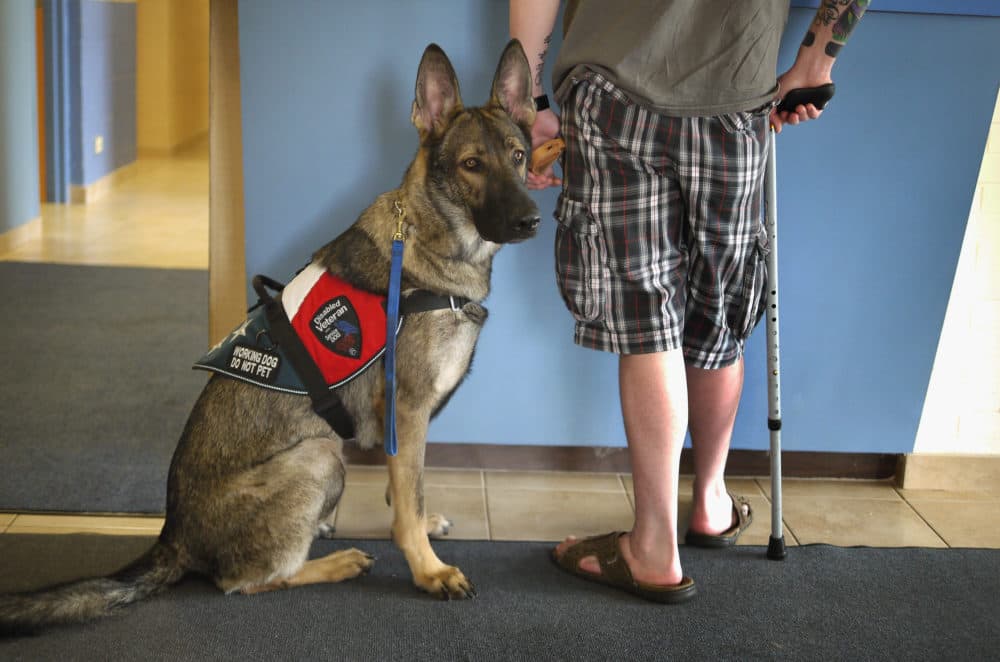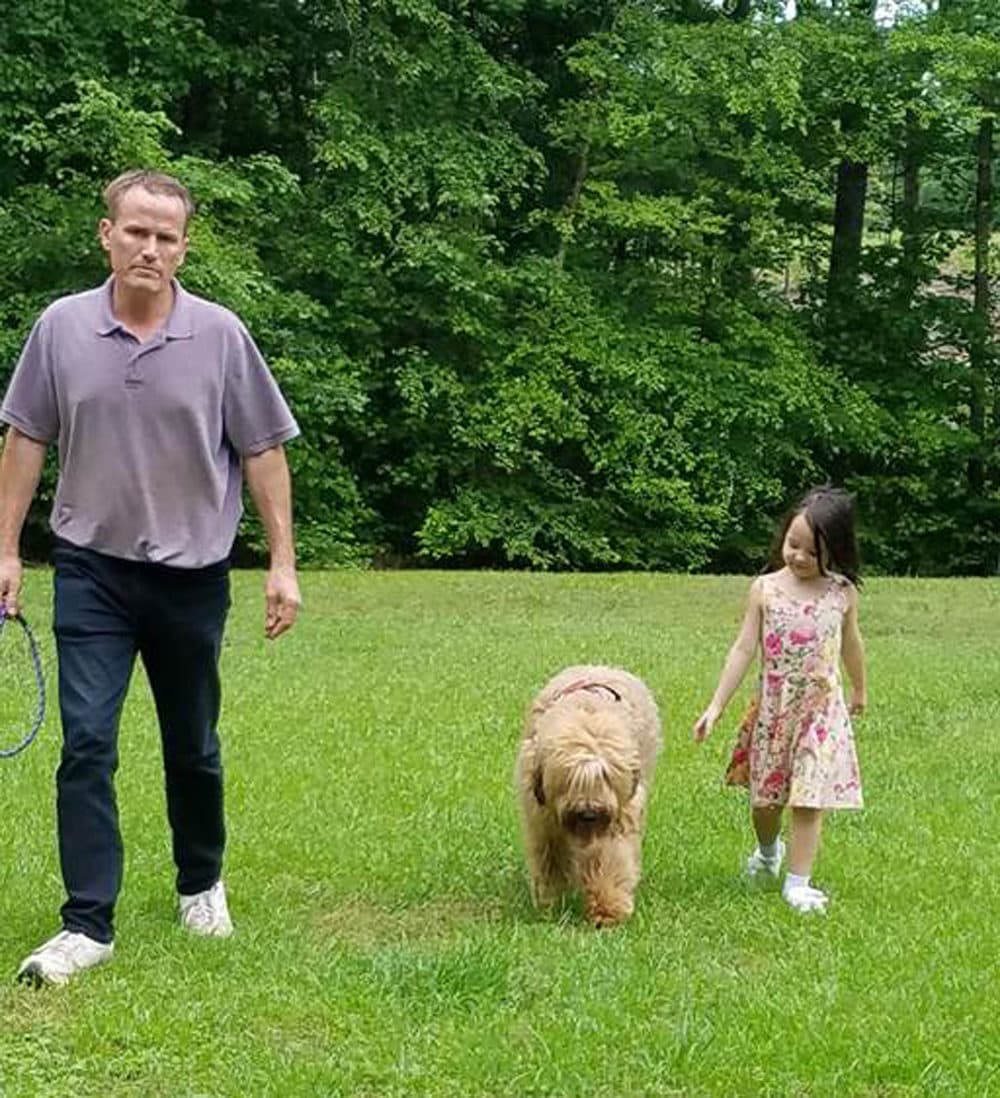Advertisement
Scam 'Service Dog' Industry Thrives On Lack Of Federal Regulations

Rebecca Peluso says she never would have thought a dog that was supposed to make her life easier would cause headaches and heartbreak.
Peluso sold her bed, dining room table and many other personal belongings in order to raise about $14,000 to purchase a service dog for her young daughter, Ella, who has autism. Ella’s autism caused her to run away frequently, putting her in dangerous situations, Peluso says.
“We were hoping [that having a service dog] would open up a door to be a part of the world, of the community, by being able to get out of the house and not worry about her running off as much or her meltdowns she'd have in stores,” Peluso tells Here & Now’s Robin Young.
But their “service dog” named Puzzle, which they bought from a man named Mark Mathis and his company Ry-Con, was not trained to guide a young child with autism.
In fact, Puzzle wasn’t trained at all.

The dog, a long-haired, mop-looking briard, would nip at Peluso’s two twin daughters and get aggressive with their corgi.
The breaking point was when the briard “went after the other twin, jumped up on her, tried to pull her shirt off, knocked her down and clawed at her legs leaving marks over her legs,” Peluso says.
“She was scared to death and crying,” Peluso adds. “She said she didn't want to be in any room that the dog was in anymore.”
Peluso is now one of 52 people across the country that have filed formal complaints with the North Carolina attorney general against Mathis, who, Peluso says, billed himself as a “North Carolina state-approved service dog trainer."
“The state attorney general alleges that Mathis not only misrepresented his credentials but also falsified breeder information, providing some families animals that were trained primarily as police or security dogs, not service dogs,” the AP reports.
Advertisement
Mathis, who denies the accusations and says people are unfairly complaining about his business, has filed for bankruptcy.
Peluso says she initially trusted Mathis because he advertised that he had vast experience with service dogs for children with autism.
Mathis isn't the only one facing accusations of falsifying service dog credentials. Legal experts say there's a cottage industry of scam “service dog” providers in the U.S.
“We've got fraud going on at all kinds of levels here,” says David Favre, a law professor at Michigan State University and editor of its Animal Legal and Historical Center website.
He pegs the fake service dog industry as the “Wild West,” filled with either well-intentioned people unequipped to train dogs, or outright con artists.
Currently, not a single state has in place a service dog trainer certification program.
“There is no formal governmental process requiring licensing,” Favre says. “All [the Americans with Disabilities Act] says is that [the dogs] must be trained. That's the only language that's in the actual law itself. It doesn’t say how they are to be trained. Doesn't do anything."
And, what used to be a “quiet” enterprise, Favre explains, has exploded in popularity over the past few years.
“With the service and assistance animals and emotional support animals that have been in the news so much for the past, say, three years or so, all of a sudden people with bad intentions or ill-informed [people] have woken up to the idea,” he says.
According to Favre, these people know it can take families a while to obtain a service dog, and they use that knowledge to their advantage.
“They're looking for ways to cut corners,” he says. “So the visible entry into the system is just too easy.”
Peluso says finding out that there weren’t state regulations in place was “flabbergasting.”
“I would like to see some federal regulations come into play," she says. "There should be some mandates that they have to meet to be a service dog company."
After an experience that "was like having the rug ripped out from underneath you," Peluso says her family ultimately had to rehouse Puzzle. Her daughter was “heartbroken.”
“[Mathis] stole hopes and dreams from these children and from these families,” she says.
Marcelle Hutchins produced and edited this story for broadcast with Robin Young. Serena McMahon adapted it for the web.
This segment aired on May 23, 2019.

